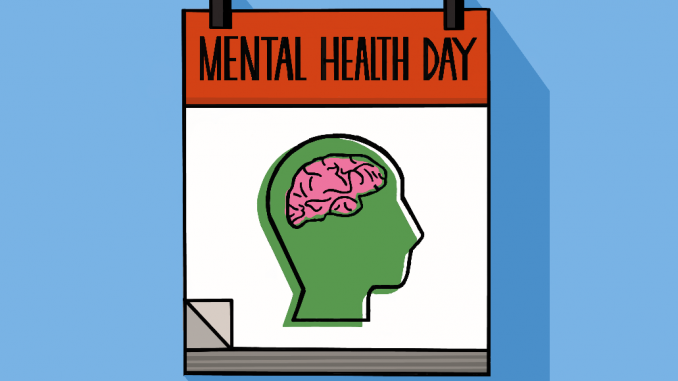
Countless open tabs with soon-to-be-finished papers litter laptop screens all around campus. Students frantically reading textbooks on train rides to their jobs and internships has become a common sight. It’s the fifth week of classes, and the work and stress is piling up.
With the pressures of classes, work and internships increasing, students barely have time to breathe, let alone take care of their mental health, setting up a dangerous precedent for the future.
Mental health disorders affect one in three college freshman, with the most common illnesses being depression and anxiety, the American Psychological Association reported in 2018.
There are plenty of on-campus resources for students dealing with mental health issues, like Tuttleman Counseling Services and the Psychological Services Center at Temple University Hospital. These resources are all available to students, but only if students seek help.
“Students feel there is a stigma around [discussing mental health]. Every time they act that way they perpetuate the stigma,” said Richard Heimberg, clinic director of the Adult Anxiety Clinic located in Weiss Hall and a psychology professor.
“I’ve seen lots of students fail courses because they didn’t want to admit they needed help,” Heimberg added.
Mental health issues can affect academic achievement, with approximately 83 percent of college students with emotional and behavioral disorders scoring worse than students without them in reading, math and writing, according to the National Center for Mental Health Checkups at Columbia University.
These difficulties only get worse after graduation, with the added responsibilities and stress of the workplace. Still, a 2018 study by the JED Foundation, a suicide prevention nonprofit, found that only two in 10 college seniors with diagnosed mental health conditions had plans for how to take care of their mental well-being after graduation.
“Ignoring mental health in this job can lead to terrible irritability, in all terms, a complete shutdown and lack of awareness of things around you, whether it be your team or your students,” said Aly Seechock, a teacher in North Philadelphia public schools since 2018.
In her first year as an educator, she experienced burnout, which Mayo Clinic defines as a physical and emotional exhaustion due to chronic stress, from her new position, which negatively impacted her mental health, Seechock said.
There’s one thing that students can do to safeguard their mental health now and in the future: ask for help, whether it is your employer or professor.
“I would definitely be open to an employee coming up to me at any time and talking to me about what’s going on with them,” said Anita Dumas, an impact manager for a nonprofit education organization in Philadelphia. Dumas said she encourages her employees to schedule weekly and monthly check-ins with her to discuss their mental health.
The 2018 study by the JED Foundation also found that eight in 10 employers would welcome an employee approaching them about their mental health struggles.
There are a number of reasons why it would be difficult for students to seek out help with their mental health, like a lack of time and busy schedules. But if students can try their best to seek help to the best of their ability, it will benefit their lives now and in the future.
“If you don’t ask for help, you’re closing off a major lifeline,” Heimberg added.


Be the first to comment